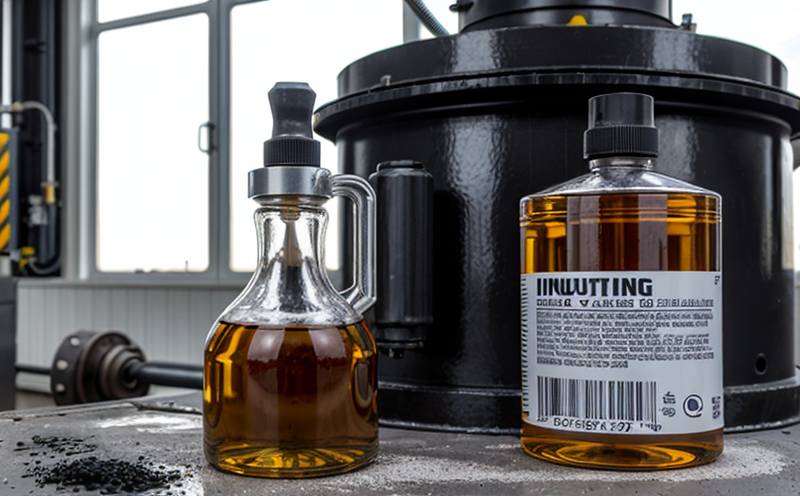EN 228 Gasoline Additive Testing
The EN 228 standard specifies requirements and methods for gasoline additives. This testing is crucial in ensuring that fuel additives meet specific performance criteria, thereby enhancing engine efficiency, reducing emissions, and extending the lifespan of engines. The standard applies to all types of gasoline used in spark-ignition internal combustion engines, including automotive fuels.
The tests are designed to evaluate various properties such as octane rating enhancement, oxidation stability, corrosion inhibition, cold flow performance, volatility, and fuel stability under storage conditions. These attributes ensure that the additives do not negatively impact the base fuel or the engine components over time. Compliance with EN 228 is particularly important for companies involved in the formulation, production, and distribution of gasoline and its additives.
The testing process involves several stages including sample preparation, analysis using various instruments like gas chromatography (GC), high-performance liquid chromatography (HPLC), and Fourier transform infrared spectroscopy (FTIR). The results are compared against predefined acceptance criteria outlined in the standard. This ensures that only products meeting these stringent requirements can be marketed as gasoline additives.
For quality managers, compliance officers, R&D engineers, and procurement teams involved with industrial oil and additive testing, understanding EN 228 is essential. It provides a framework for evaluating whether fuel additives are safe, effective, and environmentally friendly. This knowledge helps in making informed decisions regarding product selection and supplier evaluation.
The standard also includes guidelines on how to conduct the tests accurately and consistently across different laboratories. This consistency is vital as it ensures that all participants adhere to the same procedures, leading to reliable and reproducible results. Compliance with EN 228 not only improves the quality of gasoline but also contributes significantly towards environmental protection by promoting cleaner burning fuels.
Real-world applications of this testing include ensuring that fuel additives do not cause harmful emissions or lead to engine damage during combustion. By adhering strictly to EN 228, manufacturers can introduce products that enhance vehicle performance while maintaining high standards of safety and efficiency.
Scope and Methodology
The scope of EN 228 encompasses the evaluation of gasoline additives with respect to their impact on fuel properties. Key areas covered include:
- Octane rating enhancement
- Oxidation stability
- Cold flow performance
- Volatility behavior
- Fuel stability under storage conditions
- Emission control effectiveness
- Corrosion inhibition properties
The methodology involves several steps:
- Sample preparation and conditioning
- Analysis using appropriate instrumental techniques such as GC, HPLC, FTIR
- Data interpretation against specified acceptance criteria
- Reporting of findings in accordance with the standard format
The detailed procedure ensures that every aspect contributing to the overall performance of gasoline additives is thoroughly examined. This comprehensive approach guarantees reliable outcomes which are critical for regulatory compliance and market credibility.
Why Choose This Test
- Safeguard against harmful emissions and engine damage
- Ensure compliance with international standards (EN 228)
- Enhance fuel efficiency and performance
- Promote cleaner burning fuels
- Achieve consistent results across different laboratories
- Gain market credibility through rigorous testing procedures
- Support ongoing quality control measures
The EN 228 gasoline additive test is essential for ensuring the safety and efficacy of fuel additives. It offers a robust framework for evaluating products, promoting compliance with international standards, and fostering trust in the market.
International Acceptance and Recognition
EN 228 enjoys widespread recognition within Europe but has also gained acceptance internationally due to its rigorous approach to fuel additive evaluation. Laboratories around the world use this standard as a benchmark for assessing gasoline additives. Compliance with EN 228 indicates that manufacturers adhere to stringent quality control measures, which is crucial for maintaining high standards in the automotive industry.
The international acceptance of EN 228 underscores its role in driving innovation and reliability within the sector. It encourages continuous improvement in fuel additive technology by setting benchmarks against which all participants can strive for excellence. This standardization promotes fair competition among manufacturers while ensuring that consumers receive products they can trust.





